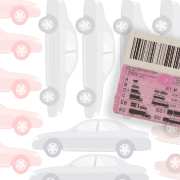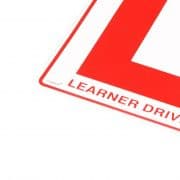|
Getting your Trinity Audio player ready...
|
On 24 October transport minister Fikile Mbalula briefed media on a Special Investigating Unit (SIU) probe into the country’s licensing system. The SIU has produced an interim report in terms of its proclamation R37 of 2017, and the levels of corruption and malfeasance it has so far uncovered are staggering.
Proclamation R37, issued by then-president Jacob Zuma, mandated the SIU to investigate the following situations:
- Registration of motor vehicles;
- Licencing of motor vehicles;
- Testing and issuing of roadworthy certificates;
- Testing and issuing of driving licences, learner’s licences, professional driving permits, and issuing of operator fitness cards;
- Conversion of foreign licences to South African licences;
- The entering of, tampering with, or manipulation of data or information on the electronic National Traffic Information System (e-Natis).
With SIU head Andy Mothibi, Mbalula discussed developments in the investigation which was sparked by, among others, officials at driving licensing testing centre (DLTCs) collaborating with driving schools on the issuing of learners’ and drivers’ licences.
Entities under investigation included the national and provincial departments of transport, and local authorities and entities that perform functions in terms of the National Road Traffic Act. At the same time, the Road Traffic Management Corporation set about conducting its own investigations, which have been reported and acted on.
The interim SIU report, said Mbalula, identified a number of administrative actions that should be taken by various authorities. The final report is expected by 31 March 2023.
Corruption and malfeasance
So far the SIU has identified a number of what it calls “drivers of the systemic and operational challenges that gave rise to the corruption and malfeasance”.
- Backlog and desperate need for driving licences, roadworthy certificates, and registration of vehicles are factors that drive fraudulent conduct;
- Corrupt officials and criminal middlemen exploit systemic weaknesses;
- Negligent and/or incompetent officials which some have access to the Natis system;
- Inadequate compliance monitoring by relevant authorities;
- Lack of and/or weak management and oversight;
- Lack of standard operating procedures across national, provincial, local authorities, and private institutions;
- Lack of memoranda of understanding with local authorities, DLTC, private vehicle testing centres, and private institutions,
- No agreed minimum performance standards for officials and/or employees;
- No financial autonomy resulting in inadequate resourcing;
- Legislative gaps;
- Greed which drives irregular and criminal behaviour;
- Roadworthy certificates issued without vehicles been tested;
- Unlawful selling of licences by DLTC officials to private persons;
- Money dumping. This relates to traffic fines, SANRAL e-toll invoices, AARTO infringements, and licence fees, which are dumped on deceased persons’ records or persons with duplicate identifications in the form of a South African identity number or traffic register number;
- Driving schools paying driving licence examiners to issue licences irregularly and/or fraudulently;
- The conversion of false foreign licences into South African card licences;
- The authorisation of Roadworthiness without vehicle testing.
The work, although still in progress, has already yielded a number of results including the referral of 190 190 driver’s licenses to MECs for cancellation, with 44 cases referred to the National Prosecuting Authority for prosecution. In addition, 86 people were arrested for fraud and/or theft, including vehicle testing examiners, police officials, and officials from the department.
In July 2022, six officials were arrested for some 10 000 illicit transactions, which cost the state a total loss of R60-million.
Measures in place
Steps have been taken to address the issues identified by the SIU. These include the introduction of online services and online payments, the rollout of smart enrolment units across all DLTCs, and the centralisation of the management of booking slots.
On 27 September 2022, the National Assembly passed the National Road Traffic Amendment Bill, which addresses further concerns raised in the SIU’s investigation – one of these is the regulation of driving schools.
Such regulation through legislation will enable closer scrutiny of the operations and conduct of driving schools, and ensure that all schools are held to uniform standards.







